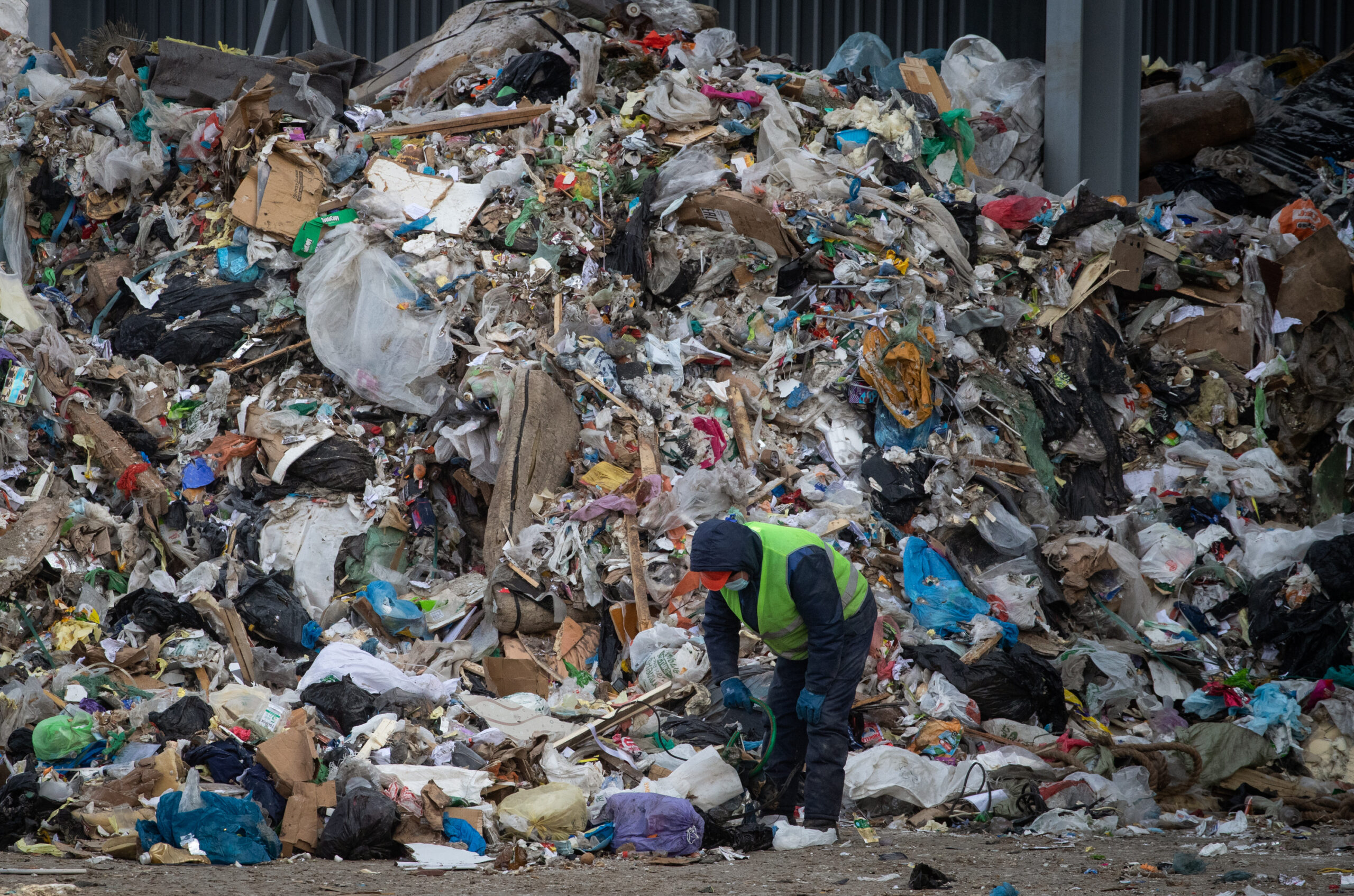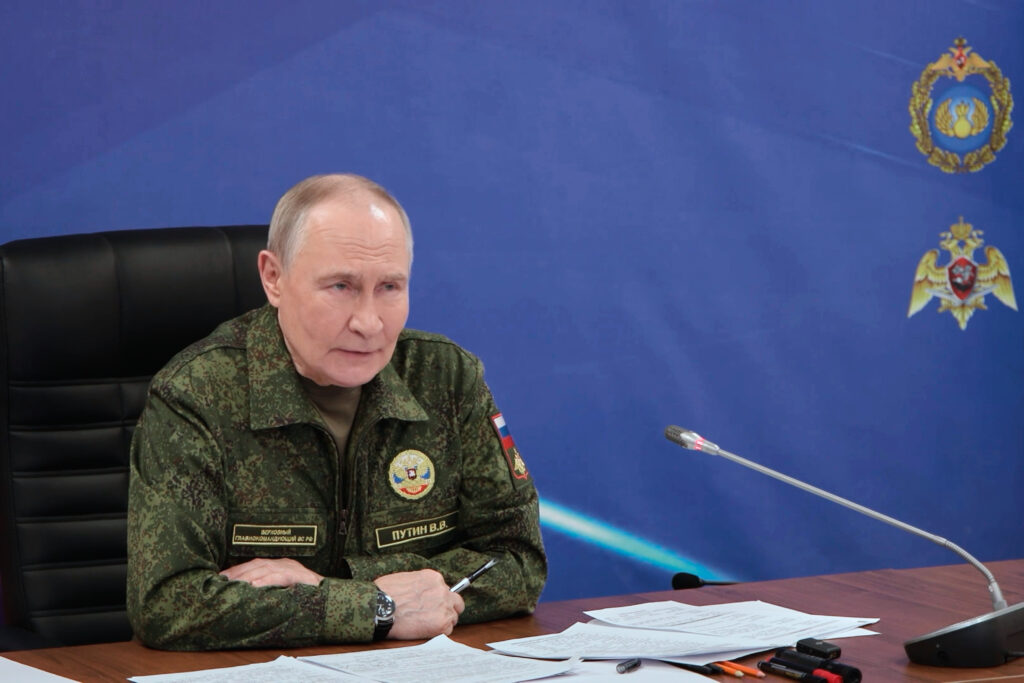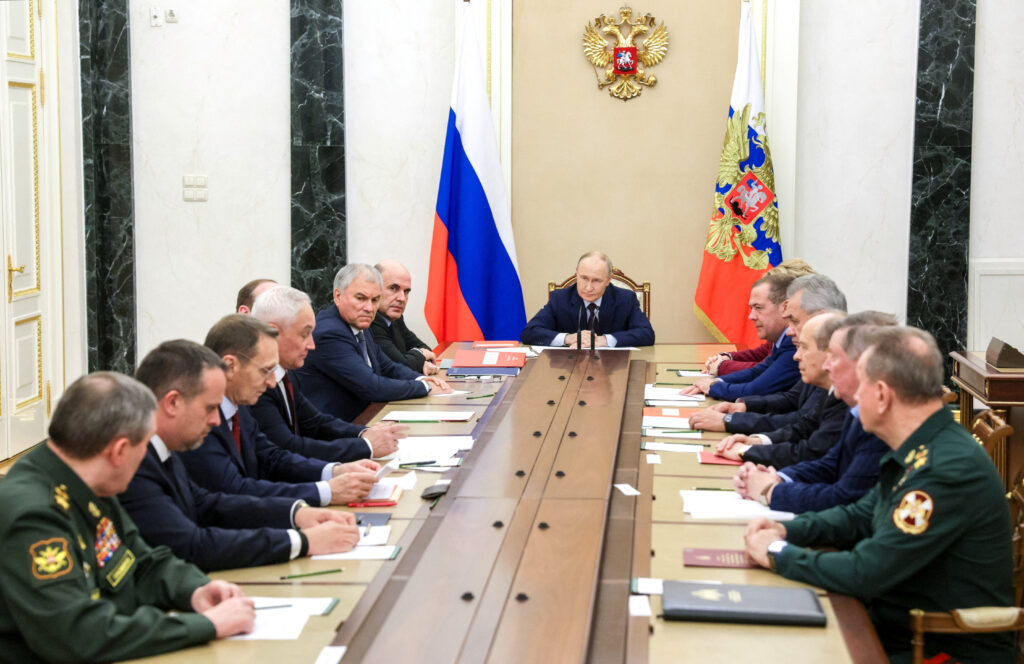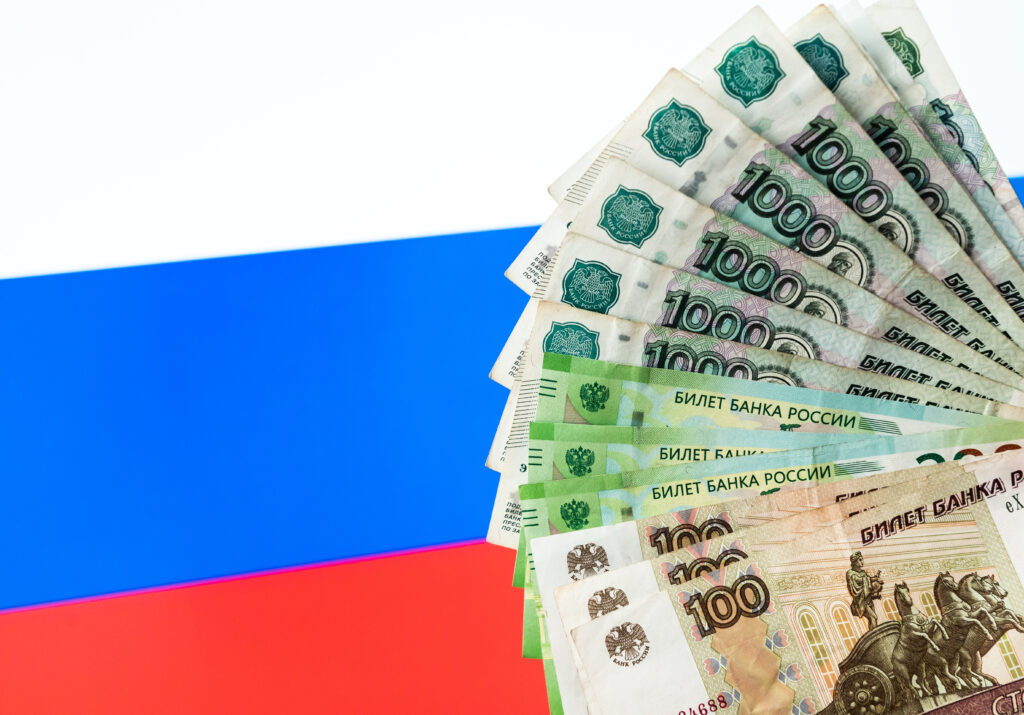New waste management regulations will be introduced in Russia from September on, designed to tighten the monitoring of regional waste operators as well as their responsibilities. This happens in parallel with a renewed «national project», which envisages the sorting of 100% of household waste by 2030 and the utilization of at least 25% as secondary resource or raw material — which includes recycling as well as incineration for the purpose of energy generation, and the manufacturing of «artificial soils». The government expects the construction of 230 new waste management facilities — for processing, recycling and disposal — across the country by 2030, at a cost of 247 billion rubles. Valentina Matvienko, the head of the Federation Council promised that «six serious laws» would be adopted this year in the field of waste management.
In one important way, a comprehensive waste management reform, which the government started six years ago, has worked as intended: a 2024 survey by the All-Russian People’s Front — a pro-Kremlin umbrella organization — found that 54 percent of citizens blamed regional officials for lack of improvements with waste management. This decentralization of responsibility, occurring in parallel to the centralization of resources and decision-making powers, is the core principle of policymaking and implementation in today’s Russia.
A closer look at what prompted this sudden urgency, just six years after the government launched the reform, what happened so far and what the government is planning to do now, tells an educational story about the trappings of policymaking in today’s Russia, namely how ambitous policies whose design was shackled by vested interests became even more difficult to implement due to the war.
Promises and failures
Over the past decade the Kremlin has gradually forced open political competition and public discourse out of federal-level politics and, to the most part, of regional politics. It has proven more difficult to diminish politics at the local level. This is to a large extent because people are generally more aware of their immediate surroundings, closer to the government officials who live around them, and feel more able to change their living environments to their liking. Proof of this are a series of efforts, in the past five years, by Mikhail Mishustin’s government to collect complaints directly from citizens, bypassing regional officials through the use of instruments such as the Centers of Regional Management.
There are few issues as straightforwardly impacting your living environment as waste management, and the Kremlin is aware of this. When in 2019 the federal government launched a reform of municipal solid waste management, it was, to a large extent, a response to a practical problem that had grown out of proportions and risked becoming a political liability: protests against problematic landfills started in the Moscow Region and, when the government tried to haul the capital region’s household waste further away, in other regions too, most notably in the Arkhangelsk Region and the Komi Republic, providing a blueprint for other conservationist movements and protests that were not considered to be political in nature.
The original promise of the 2019 reform was a municipal waste management system, in which such problems would not arise at all, due to a more efficient removal, sorting and recycling of garbage, and in which illegal garbage dumps affecting citizens’ quality of life would be closed. Regional governors have been evaluated by key performance indicators (KPIs) related to the objectives of the reform since 2021. Yet, a series of high-profile officials last year — including Matvienko herself, along with former United Russia bigwig (now Altai governor) Andrey Turchak, former deputy prime minister Viktoria Abramchenko and prosecutor general Igor Krasnov — described the reform as a failure. The People’s Front survey backed them up: even as the federal government kept talking up the results of the reform, only 34% of Russians saw any positive developments, with 30% saying that waste management had actually gotten worse.
Indeed, in spite of the roughly 94 billion rubles spent on it over 2019−24, the reform was far from successful, especially in peripheric regions: the Far East, the North Caucasus and the Russian Northwest, which, unlike the largest urban areas, have seen little change. But even looking at the country as a whole, progress has been modest.
One of the positive and often highlighted results has been a nascent recycling and waste utilization industry, which however still handless only about 12−13% of household waste: up from around 2% before the reform, but a far cry from the 36% that the reform originally envisaged for 2024 (and even this number includes incineration). Close to 40% of the population does not even have the possibility to sort their household waste. Higher-than-expected revenues from an ecological tax charged on manufacturers that do not recycle waste or import specific packaging suggests that market incentives for recycling are still weak.
The reform originally envisaged building and reconstructing 350 sorting facilities by 2024. Only 148 processing facilities were built. While the number of illegal landfills finally started dropping in 2022 (after increasing in the first three years of the reform), it is unclear to what extent this is due to the authorities changing the status of existing dumps. Given that most of the illegal dumps have had to be closed at the cost of municipalities or regional operators, the motivation has been weak, especially since war-related expenditures have further degraded the state of municipal finances. The fact that in 2023 the government extended a tolerance period for the closure of these illegal dumps to 2026 suggests that alternatives are often scarcely available. Either way, citizens are still visibly upset about and protest against the opening of new (legal) garbage dumps, which local and regional authorities often do without proper consultation. Individual regions have faced violations of rules, corruption scandals (e.g. in Novosibirsk), a focus on the optics with little change regarding the procedure (e.g. in Bashkortostan) and territorial feuds between rival business interests (e.g. in St. Petersburg). The Ministry for the Environment admits that there is a shortage of 300,000 garbage containers as well as platforms.
The failures should not come as a surprise, as the approach to the reform was flawed from the start. The core idea of the 2019 changes was the creation of «regional operators», which would act as an intermediary between residents, local authorities and the various waste management companies involved in the collection, transportation and processing of municipal waste. As of 2024, there were 182 of such companies in Russia. But instead of making waste removal simpler and cheaper for residents, these often ended up being politically connected monopolies that, as sectoral experts interviewed by Kedr pointed out, cut corners and charged consumers for investments that never materialized, and were able to dictate prices and conditions for years to their suppliers and contractors. Several regions did change regional operators after years of underperformance and fines by the Federal Antimonopoly Service, but this does not change the underlying system. The reform also prioritized building new waste management plants — construction projects provide excellent opportunities for officials to receive kickbacks. Part of this may have been necessary due to the relative inefficiency of upgrading existing plants instead of investing in new ones, but existing capacities were significantly underutilized: according to the authorities’ own calculations, in 2020 Russia had 37 million tons of waste utilization capacity and generated 48.4 million tons of municipal solid waste, of which only 3.6 percent was recycled.
In spite of this, the government itself had to doctor the figures: in 2024, as it emerged that the reform’s utilization benchmarks would not be reached, it adjusted the wording, adding «neutralization» to the definition of utilization (allowing waste incineration to be counted), and reduced targets. When, by 2022, it became clear that the authorities would not be able to clean up all illegal landfills by the 2024 deadline, the relevant «Clean Country» project was quietly scrapped and folded into a much larger and broader initiative that also targeted sea cleanup, with a later deadline. Meanwhile, the amount of waste ending up in landfills has barely decreased, as regions struggled with a shortage of containers and technology.
What the reform did not do is provide incentives to households and businesses to voluntarily engage in more waste sorting, use environmentally friendly packaging or reduce unnecessary waste. In some cases, e.g. in Tyumen or Chelyabinsk, the authorities’ inflexibility in carrying out the reform even killed functional local schemes. The inflation unleashed by sanctions and war production also made the situation worse, not only by making it more difficult to convince consumers to pay extra for recyclable packaging, but in some cases by directly increasing the amount of packaging. The aforementioned eco-tax had a similar impact as companies could simply pass costs on to consumers.
Similarly to other domestic policy objectives, the war has made achieving the goals of the reform even more difficult. The federal budget’s focus on war-related expenditures has limited capital investments domestically. Expenditures on the waste management reform were among the first to be cut after the full-scale war started in 2022, and they were further reduced in 2024, in order to free up funds to buy drones and rebuild infrastructure in the occupied Ukrainian territories. War-related expenditures like social aid and recruitment put stress on regional and local budgets too. Due to trade restrictions, technology import became more cumbersome and expensive, making the maintenance and replacement of specialized garbage trucks difficult (let alone building a domestic industry, as deputy prime minister Dmitry Patrushev, now in charge of the reform, wants). The exit of foreign capital also held back technology upgrades. Prior to 2020, the state-owned technology giant Rostec had planned to build five incinerators using technology from the Japanese Hitachi company, but ended up completing just one by 2025. Similarly to other sectors, Chinese investors eventually came to the rescue, replacing Hitachi in another incinerator, planned near Kazan (and expressed interest in building a small number of waste processing plans in the Far East), but the project was severely delayed even so, as technological specifics had to be redesigned. This also underlined that imported technology cannot yet be replaced with domestic one. The central bank’s high key rate drove up the cost of borrowing, including via specialized green bonds, making it more difficult for companies to invest in new technologies. Labor shortages, exacerbated by the military industrial complex running high on state orders, caused shortages of truck drivers and led to an increase in expected salaries. While not a direct consequence of the war, anti-migrant policies adopted in the wake of terrorist attacks in 2024 also affected the labor pool that waste management companies rely on.
Shackles on policymaking
A mere tightening of existing regulations, which has been announced so far, can do little to address the most pressing constraints created by the war. And in the absence of this, it’s as if the government did not even want to attempt to correct the design flaws of the original reform, either.
Just like earlier, the government is essentially moving the goalposts closer and offloads responsibility. Artificial soils — along with energy-generating incinerators — are now understood as waste «re-entering economic circulation», regardless of whether there is organic demand for it. Meanwhile, the updates, as experts at the Higher School of Economics warned, still do not incentivize household sorting and recycling, nor do they create organic demand for reused materials. By making it possible for regions to improve utilization figures by creating demand through their budget, the regulation puts the onus on governors whose job is evaluated on KPIs linked to the reform, and are able to roll the costs on to citizens. In a similar vein, the costs of cleaning up areas of «accumulated harm» will fall on regional budgets. The closer monitoring of operators and expanding their responsibilities may improve performance, but it could also create more opportunities for corruption or higher costs for households, which is considered a political risk and thus, undesirable.
It is also unclear who is supposed to bear the costs of the technology upgrades required to hit the investment objectives of the reform. The financing foreseen in the Ecology national project seems to be larger than the — compared to the size of the problem — very small sum spent in the first five years of the reform, but the government covers only half of the expected costs. The government expects to see an influx of «extra-budgetary funds» — money drawn in from the private sector — but given the high cost of borrowing and lower profit margins, this seems wishful thinking. In such cases it is often implied that regional governments should put pressure on local business to invest more actively. But there are delays already: as of April 2025, 35 regions had not even submitted their investment plans for new waste processing plants.
But on these problems there is at least some reflection in the government, even if the fiscal straitjacket of the war and the inertia of vested interests prevent the adoption of serious solutions. Less so on another core characteristic of policymaking: detachment from and even hostility towards grassroots activism. The authorities avoid public hearings about contentious policies, trying instead to push them through as quickly and quietly as possible, and with the looming return of war participants from Ukraine — who have already engaged in local activism from the frontlines — the authorities seem to be keen to keep a close eye on veterans’ political organization. The accelerated securitization of domestic politics over the past years has meant that a growing array of movements are understood as political and thus suspect. Crackdowns have increasingly affected large environmentalist and local conservationist movements, instead of local authorities seeking to cooperate with them to implement policy.
Even in the unlikely case when, following a settlement of the war in Ukraine, the federal government would be able and willing to refocus spending on solving Russia’s municipal infrastructure crisis, and within it, waste management, the success of the reform will likely hinge on eliminating the underlying suspicion preventing most authorities from working with concerned, and often critical, civil society; a gargantuan task that will require to remove more toxicity even than clearing up illegal landfills.










